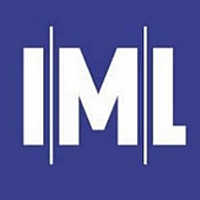IML's views on current market movements
There are a number of contributors to the current falls being seen. There is weakness in the Chinese economy which has undermined commodity prices including iron ore, copper and oil. The Chinese financial system has also been very volatile, with significant falls in the Chinese stock market after a steep rise in the previous 12 months fuelled by a retail stock buying frenzy. The Chinese Government has been trying to bolster its market without success. In addition the reporting season locally has been quite disappointing with many Australian companies providing muted guidance for the 2016 fiscal year and this has seen weakness across a broad range of stocks. In addition both ANZ and CBA are in the process of raising $8 billion of new equity at significant discounts in August and this has also depressed the prices of other stocks across the market. As many would be aware, we have been cautious on the banks given sluggish credit growth and increasing capital requirements.
Whilst our funds have not been immune to the broad sell off, we have been cautiously positioned for a while and remain comfortable with the valuations of our key positions. In the short term fickle investor sentiment will continue to cause wild swings in valuations, but over the medium term quality companies will be recognised for their ability to produce steady, growing earnings. These earnings underpin a growing dividend stream which we have always focused on as a key part of the investment appeal.
Most of the carnage has been in commodity related stocks and more cyclical companies. Earnings forecasts by the markets have assumed an acceleration in growth from current levels, something we have thought unlikely given aging demographics, high debt levels and structural problems with growth in China. Our portfolio has been more focused on companies that will be less affected by economic sluggishness. Telstra, for example, has a dominant position in mobiles and other communications, has been able to increase its dividend (now 30.5c, a 5.5% yield), and has a very strong balance sheet. CSL is continuing to invest heavily in R&D to drive growth well in to the future. The company has very low debt and regularly buys back shares on market. Aurizon, yielding 5.5%, has take or pay contracts with its coal haulage customers, and receives a regulated return on its “below rail” network. Recent changes to its EBAs will allow the company to be more cost efficient.
Inevitably we have had some stocks that have underperformed, most notably Origin with the very weak oil price although the company's core energy generation and retailing business' result was actually above expectations. Overall the majority of companies in the portfolio have delivered satisfactory results. We are continuing to focus our research on stocks that we believe can continue to do well despite the macro environment - which is tough and likely to stay so for a while.
We know that prices can gyrate wildly in the short term but we also know that such gyrations will create opportunities to buy good quality companies with the cash that we have kept on hand to take advantage of such volatility. We cannot forecast short term market moves but we do know that behind the noise, well managed quality companies will deliver over the medium to long term for our clients.
While we believe sharemarkets will be volatile for a little while longer, given many stocks in Australia are now yielding well over 5% and that it appears interest rates will stay low both here and overseas for a while longer given continued economic weakness, we expect the Australian market to find a base soon.
This is not the first downturn or period of extreme volatility that IML has been though in our 17 year history and unfortunately it won't be the last. From experience we know that periods such as these are a good time to calmly look for opportunities to selectively buy stocks when we adjudge them to be at very attractive long term prices as often many stocks get oversold. Our large cap funds are well positioned to do this with our cash levels close to 10% when the expected proceeds from the Energy Developments takeover bid are taken into account.
3 topics

